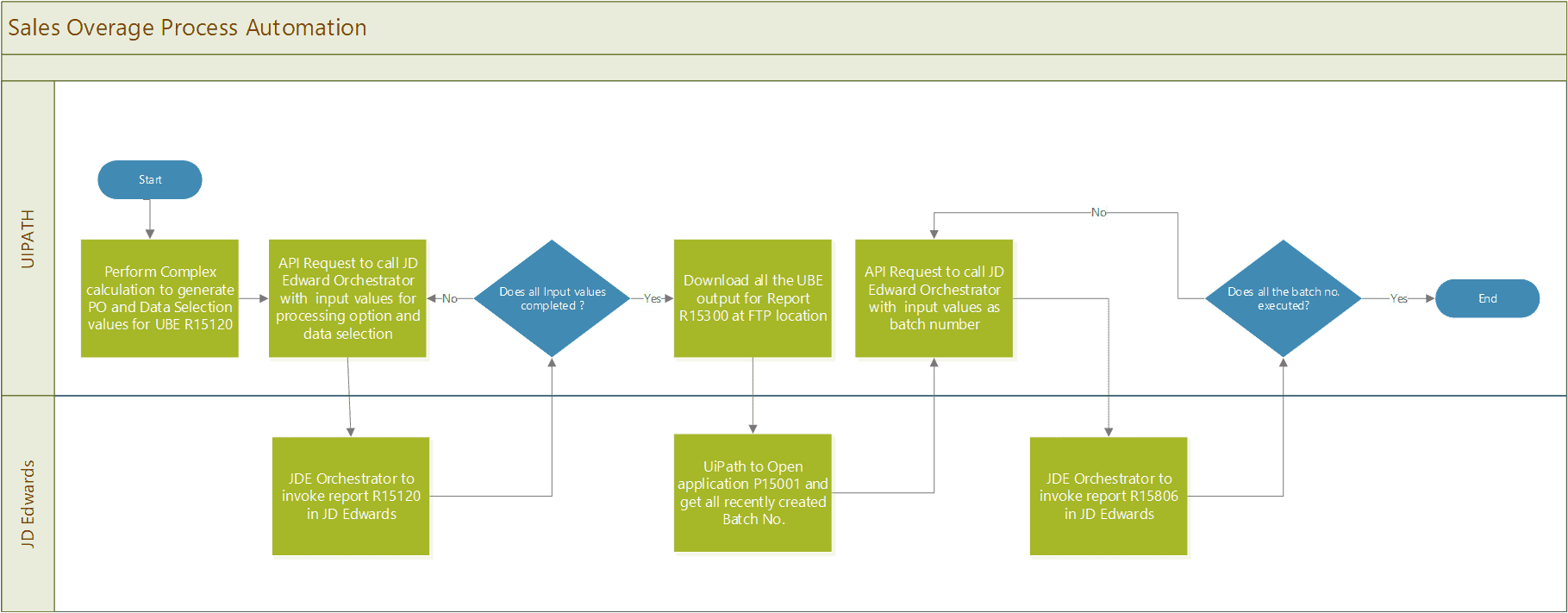Sales Overage Process Automation with JD Edwards and UiPath
Processes like reconciling sales overage in real estate can be very time-consuming. In this article, we detail a recent hackathon use case by walking through how we automated the sales overage process using JD Edwards Orchestrator and UiPath.
Real Estate Management
For our recent hackathon, we chose to work on a topic with one of our real estate clients as a use case for automation. In this proof of concept, we used a unique combination of JD Edwards Orchestrator and UiPath to come up with a complete automation solution. This solution helped our client to reduce their work load and get more efficient results which in turn led to huge cost saving.
The Use Case
Our real estate client has some billing issues with their retail tenants. To resolve those billing issues, they run the sales overage process (a billing process where the tenant pays a portion of their sales to the landlord in exchange for a lower rent) every week for the past 12 months and send the final outcome to their tenants for billing/adjustments.
As a part of this process:
The Approach
The initial approach is to break the process flow into different tasks. Some tasks are being performed by UiPath and some are being performed by JD Edwards Orchestrator. An API call has been used to maintain the coordination between the UiPath and JD Edwards Orchestrator. The overall workflow is being maintained in UiPath.
Task 1
This task is initiated through UiPath. Complex logic has been developed in UiPath which calculates the processing option and data selection values for the Sales Overage Report for all previous months. For each calculated value, there is a loop to the API call to initiate the JD Edwards orchestration.
Task 2
We created the JD Edwards orchestration. In this orchestration, we put the batch request to invoke the JD Edwards Sales Overage Generation Report (R15120). The input value is the data selection and processing option which comes from UiPath.
Task 3
This task is initiated through UiPath. After the completion of Task 2 we put an intentional delay in UiPath to ensure all the reports are completed. Through UiPath, we log into JD Edwards and prompt submitted jobs to download all completed Billing Edit Register Reports(R15300) at a particular location.
Task 4
Through UiPath, we open the JD Edwards Application (P15001) and look for all recently created batches. For each batch number, we make an API call to the JD Edwards orchestration.
Task 5
We created the JD Edward orchestration. In this orchestration, we put the batch request to invoke the JD Edward Batch Delete Program(R15806). The batch number is provided as an input value for data selection.
Automation For The Workforce
By completing this hackathon project, we were able to exhibit how JD Edwards Orchestrator in combination with UiPath can help businesses enable more effective and efficient employees by simplifying their jobs and reducing repetitive, tedious tasks. Allowing them to spend more time solving issues, innovating tasks, and adding more value to the company.
Looking for more on automation?
Explore more insights and expertise at smartbridge.com/automation
There’s more to explore at Smartbridge.com!
Sign up to be notified when we publish articles, news, videos and more!
Other ways to
follow us:





